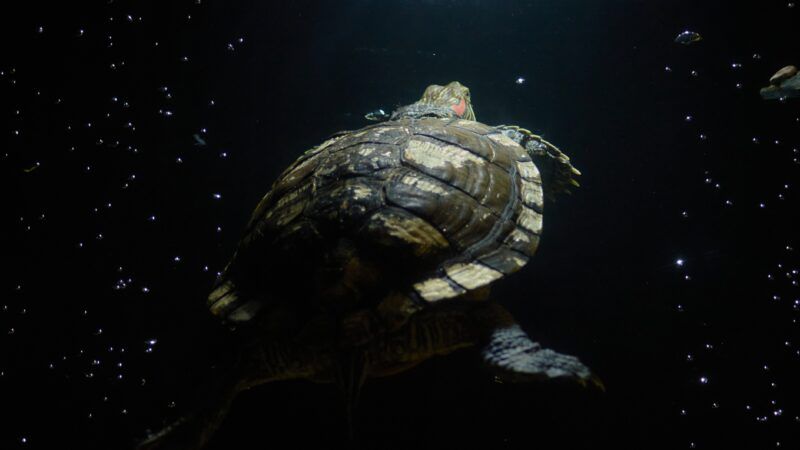U.S. Space Force Finds 30 Kilos of Cocaine While Looking for Sea Turtles
The drug bust blurs the line between military operations and civilian law enforcement.

The new U.S. Space Force apparently believes that only it should have the right to get really, really high.
Back in May, a group of guardians*—that's what members of the Space Force are called—with the Space Launch Delta 45 based at Patrick Space Force Base in Florida came across 30 kilograms of cocaine while conducting a nesting survey of sea turtles, according to Insider, which first reported the news earlier today.
Angy Chambers, a wildlife manager with the delta's 45th Civil Engineer Squadron, said she spotted a tightly wrapped plastic package while patrolling the beach during the survey.
"I immediately contacted the 45th Security Forces Squadron [SFS]," Chambers recounted in a Space Force press release. "While I was waiting for them to arrive, I drove a little further and noticed another package, and then another. At that point, I called SFS back and suggested they bring their UTV, or Utility Terrain Vehicle, as I counted at least 18 packages."
The Space Force guardians suspected the packages concealed drugs. Deputies with the Brevard County Sheriff's Office were called to the scene, where they performed a field test that confirmed the packages contained cocaine.
In the end, 24 cocaine parcels were found on the beach. The sheriff's office estimates that they're worth $1.2 million, although police valuations of the drugs seized are often absurdly overstated.
The drugs themselves were handed over to the U.S. Department of Homeland Security, another relatively new security service of dubious utility. The Space Force press release says that the origins of the cocaine are still under investigation, although it appears to be terrestrial.
A story about Space Force guardians finding a bunch of cocaine while looking for sea turtles might tempt one to laugh, and to keep laughing so hard that one can't even breathe.
But there's really nothing funny about yet another government agency—and a branch of the military at that—lending a hand to America's disastrous drug war. Space Force's cooperation with police blurs the line between civilian law enforcement and military operations. It also demonstrates just how easily even new, futuristic arms of the state can be roped into an antiquated anti-drug crusade.
Correction: The original version of this article referred to members of the Space Force as defenders. They are called guardians.
Rent Free is a weekly newsletter from Christian Britschgi on urbanism and the fight for less regulation, more housing, more property rights, and more freedom in America's cities.


Show Comments (57)